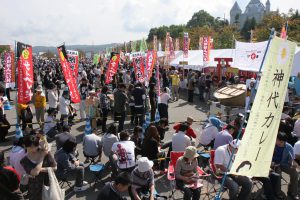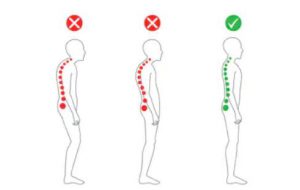Japan's Local Food Business Helps Local Economies
Japanese Local Food or Dishes Are In The Japanese economy is being struck down by the corona virus. How to lay out a strategy for future growth for Japan in the midst of worries about a deflationary economy is a major issue for today. Japan’s provinces, outlying cities and rural areas (governed by local authorities) […]
What is the ideal boss like for Japanese?
In Japan what is the ideal boss like? Respectful Decisive Expresses gratitude Responsible Thoughtful Gives clear directions Is a good leader Has dignity Has a clear vision Is fair to everyone Source: 2020, January, GOURMET NAVIGATOR INC.
Useful Japanese word (1): むり “Muri” (In Chinese characters: 無理)
What is むり “Muri” (In Chinese characters: 無理)? As you may know, “desu (です)” can be added to make a Japanese sentence sound polite. So in this case as well, “Muri desu (むりです)” sounds better. But it can be used without “desu” if you want to say it casually. “Muri” is used when you think […]
Japanese Job Interview -- (5) Self-Introduction
(5) Job Interview – Self-Introduction Their first question at the interview will be "Please introduce yourself." The interviewer determines from the initial impression, communication skills, job experience summary, and self-introduction whether your experience is relevant to the company. We also check your personality and compatibility with other employees based on your expression and tone. First […]
Q: Do the old Japanese values of "Men work and women stay at home" still exist?
Q: Do the old Japanese values of "Men work and women stay at home" still exist? Answer: Yes, there are still some. I think that tendency is particularly strong among SMEs. A Japanese worker would be puzzled to hear that a non-Japanese male worker, even though a dedicated employee, refuses to travel when his wife […]
Why are you looking for a job in elderly care?
Why are you looking for a job in elderly care in Japan? The Ministry of Health, Labor and Welfare (MHLW) has released an estimate that about 2.8 million nursing care workers will be needed in fiscal 2040, when the number of elderly people aged 65 and over will almost reach its peak. According to the research […]
Japanese Job Interview -- (4) Japanese Job Interview Flow and Cautions
(4) Japanese Job Interview Flow and Cautions What you are always asked at the interview are self-introduction and reason for applying. You will also almost certainly be asked if you have any questions. Of course, there are many other questions. They ask you all kinds of questions about you: "How much salary do you want?" […]
Japanese Job Interview -- (3) Precautions and preparation when speaking
https://youtu.be/dgfSOy0GX6A (3) Precautions and preparation when speaking When you answer the question, be sure to answer straight. A roundabout explanation will irritate the listener. To that end, speak the conclusion first. Also, check the company thoroughly before the interview. By researching in advance what kind of mission they have and what kind of business strategy […]
Japan's most popular fire extinguishers' history
Japan's most popular fire extinguishers' history 1. Miyata Kogyo’s Fire Extinguishers 2. Miyata Industry Co. Ltd. was originally founded as Miyata Seijusho (gun manufactory) in 1881. It changed its business in 1902 and is now well known for its Miyata brand of bicycles. However, how many people know that this company is also a leader […]
Japanese Job Interview -- (2) Posture and way of speaking during the interview
(2) Posture and way of speaking during the interview Next, it is about the posture and the way of speaking at the interview. First of all, it is not common in Japan to shake hands. Sit with your back straight. It's not good to have a hunched back, put your elbows on the desk, or […]











